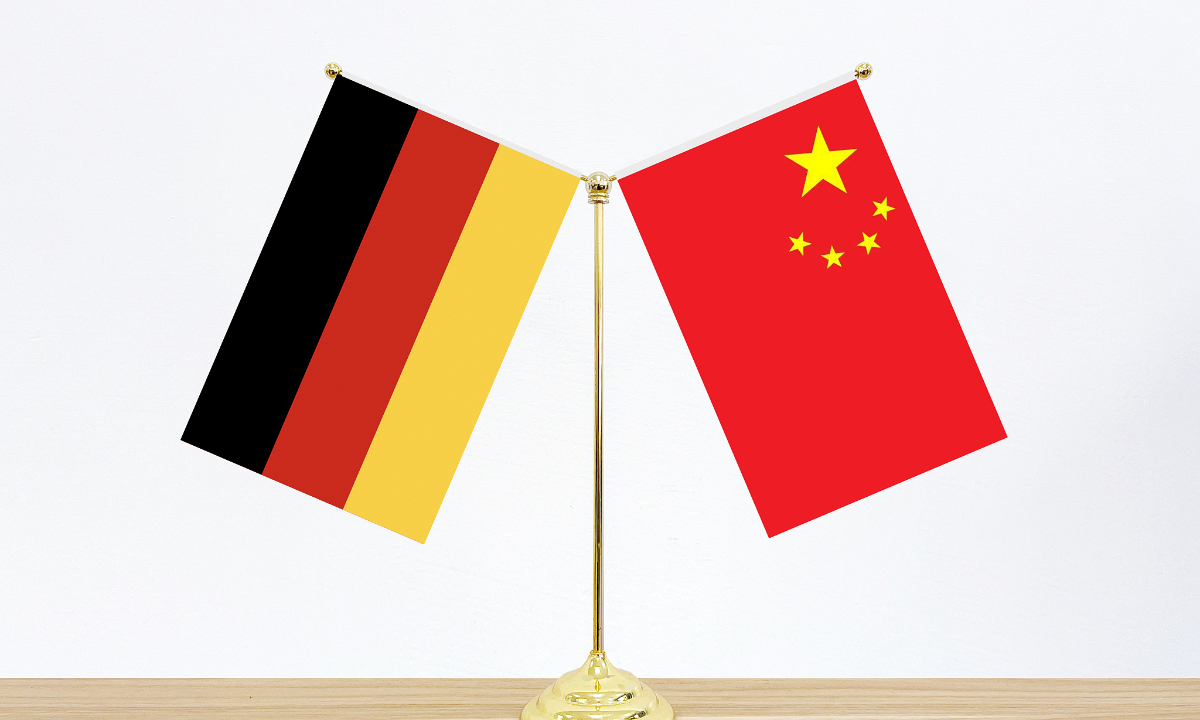Sound and stable China-Germany ties serve both countries' interests, Xi tells Merz
Phone call helps deepen political trust, instill confidence amid uncertainty: expert

Top news
Chinese President Xi Jinping said Friday that China is ready to work with Germany to open a new chapter in their all-round strategic partnership, to steer China-EU relations toward new progress and to make new contributions to the stable growth of the world economy, the Xinhua News Agency reported on Friday.
Speaking to German Chancellor Friedrich Merz over phone, Xi once again congratulated him on assuming office. He pointed out that as the world undergoes accelerated changes unseen in a century and the international landscape is marked by transformation and turbulence, the strategic and global significance of China-Germany and China-EU relations has become even more prominent.
Xi's conversation with Merz came after his phone call with French President Emmanuel Macron on Thursday, during which the Chinese leader urged China and France to be reliable forces for maintaining international order, open forces for promoting global growth and progressive forces for guiding multilateral cooperation, according to Xinhua.
The meeting between the top diplomats of China and the Netherlands has become another example of the close exchanges between China and Europe in recent weeks. Also on Thursday, Chinese Foreign Minister Wang Yi held talks with Foreign Minister of the Netherlands Caspar Veldkamp in Beijing, reaching six points of consensus.
The two sides agreed to maintain close communication concerning cooperation in multiple fields, including semiconductor technology, via existing channels. They reaffirmed support for multilateralism, pledged to adhere to free trade and the multilateral trading system with the World Trade Organization at its core, and promised to strengthen exchanges and cooperation in areas such as climate adaptation and green transformation.
Jiang Feng, professor of European Studies at the Shanghai International Studies University and president of the Shanghai Association of Regional and Country Studies, told the Global Times that frequent high-level interactions between Chinese and European leaders help enhance mutual understanding, deepen political trust, and lay a solid foundation for the stable development of relations, bringing confidence to a turbulent world.
According to the expert, Europe is grappling with complex challenges, including security crises, sluggish economic recovery, and growing social unrest and polarization. As an open economy committed to multilateralism, China offers strong complementarity with Europe in key areas such as trade, employment, and technological innovation.
Deepening China-Europe cooperation not only aligns with the mutual interests of both parties but also fosters greater stability and progress on the global stage, Jiang said.

China Germany Photo:VCG
Positive expectation
In the phone call with Merz on Friday, Xi said that China and Germany have developed their bilateral relations based on mutual respect, seeking common ground while shelving differences, and win-win cooperation, calling on both sides to maintain and carry forward this fine tradition.
First, Xi called for consolidating political mutual trust. He said China views Germany as a partner, welcomes Germany's development and prosperity, and is willing to maintain close high-level exchanges with Germany, respect each other's core interests and consolidate the political foundation of bilateral relations.
Second, Xi urged the two sides to enhance the resilience of the bilateral relationship. He said both sides should not only continue to expand the existing cooperation in traditional fields such as automobiles, mechanical manufacturing and chemical industry, but seek more collaboration in cutting-edge fields such as artificial intelligence and quantum technology, and strengthen exchanges and cooperation in areas including climate change and green development, contributing the wisdom and solutions of China and Germany to global sustainable development.
Third, Xi noted that bilateral cooperation should continue to gather momentum. He said that China is willing to share with Germany development opportunities brought about by its high-level opening-up, adding that China hopes Germany will offer more policy support and facilitation for two-way investment, and provide a fair, transparent and non-discriminatory business environment for Chinese enterprises.
Merz said that under the current international situation, as the world's two major economies, cooperation between Germany and China is particularly significant. The new German government adheres to the one-China policy and is willing to promote greater development of the strategic partnership between the two countries in a constructive and pragmatic spirit, according to Xinhua.
The German side looks forward to strengthening exchanges and cooperation with China in various fields, adhering to openness and mutual benefit, promoting fair trade, maintaining world peace, and jointly addressing global challenges such as climate change, Merz said, per a Xinhua report.
Sun Keqin, a research fellow at the China Institutes of Contemporary International Relations, told the Global Times that the Chinese leader reiterated the high importance of cooperation with Germany during the talks, demonstrating strong strategic sincerity.
"China's expectations are clear and positive," he said.
On the other hand, Sun added that Merz's government should find a balance between ideology and practical interests in its China policy. "Maintaining pragmatism and reducing confrontational rhetoric is a key task."
Both China and Germany are manufacturing powerhouses and major global exporters, with strong economic complementarity and immense cooperation potential, said the expert, noting that stable China-Germany ties can significantly mitigate the spillover of uncertainty from US policies.
China and Germany have deeply integrated and closely related cooperation in the economic and trade fields.
In terms of goods trade, according to data from China's Ministry of Commerce, the bilateral trade volume in 2024 was $201.88 billion. In terms of two-way investment, Germany is the EU country with the largest investment and the most projects in China, and it is also an important destination for Chinese enterprises' outbound investment.
Chinese companies initiated 199 FDI projects in Germany last year, nearly matching the 200 projects recorded in 2023. That year's figure marked a 42-percent year-on-year increase and the highest level since 2017. Among all source countries, China ranked third, following the US and Switzerland, according to Xinhua, citing data released by Germany Trade & Invest in May.
Proper position
Xi pointed out that facts have fully proven that partnership is the proper positioning of China-Germany and China-EU relations, and a stable and predictable policy environment is essential to ensuring bilateral cooperation.
As major countries, he added, both sides share a common responsibility. Noting that this year marks the 50th anniversary of diplomatic relations between China and the EU, Xi said that the two sides should jointly review the successful experience in the development of China-EU relations and send a positive signal in support of multilateralism and free trade, as well as deepening openness and mutually beneficial cooperation.
A sound and stable China-Germany relationship serves both countries' interests, and meets the expectations of various sectors in China and Europe, the Chinese president added.
Merz said that the healthy and stable development of EU-China relations is in the interests of both sides, and the German side is willing to play an active role in this regard, according to Xinhua.
Since establishing the "All-round Strategic Partnership" in 2014, China and Germany have maintained a solid foundation for cooperation. Chinese leaders have proposed "opening a new chapter," signaling a desire to further expand cooperation while stabilizing ties, Sun said.
The global tariff war launched by the US has significantly disrupted the global economic order, plunging the international trade system into a state of high instability. As beneficiaries and defenders of the multilateral free trade system, China and Europe share a natural foundation for cooperation, he added.
Furthermore, experts note that the US' continuous pressure on Europe in the security and energy sectors has constrained its development momentum, and cooperation with China and joint efforts to address challenges are conducive to enhancing Europe's strategic autonomy.
"Confidence and trust are in short supply in today's world," said Jiang, "economic development is the cornerstone of social stability and the foundation for improving international relations, requiring pragmatic advancement."
Jiang stressed that close communication between Chinese and European leaders is essential for building strategic trust and instilling confidence globally. "Regardless of US acknowledgment, global integration is an inevitable historical trend. Therefore, maintaining such dialogue between Chinese and European leaders at critical moments is particularly vital for safeguarding multilateralism and free trade."

